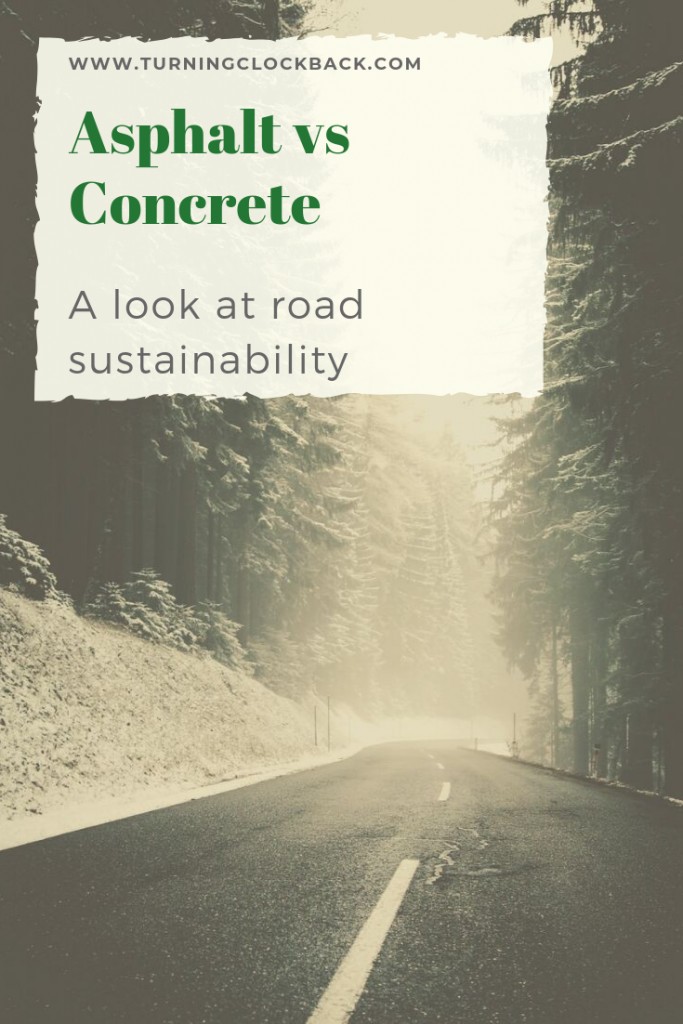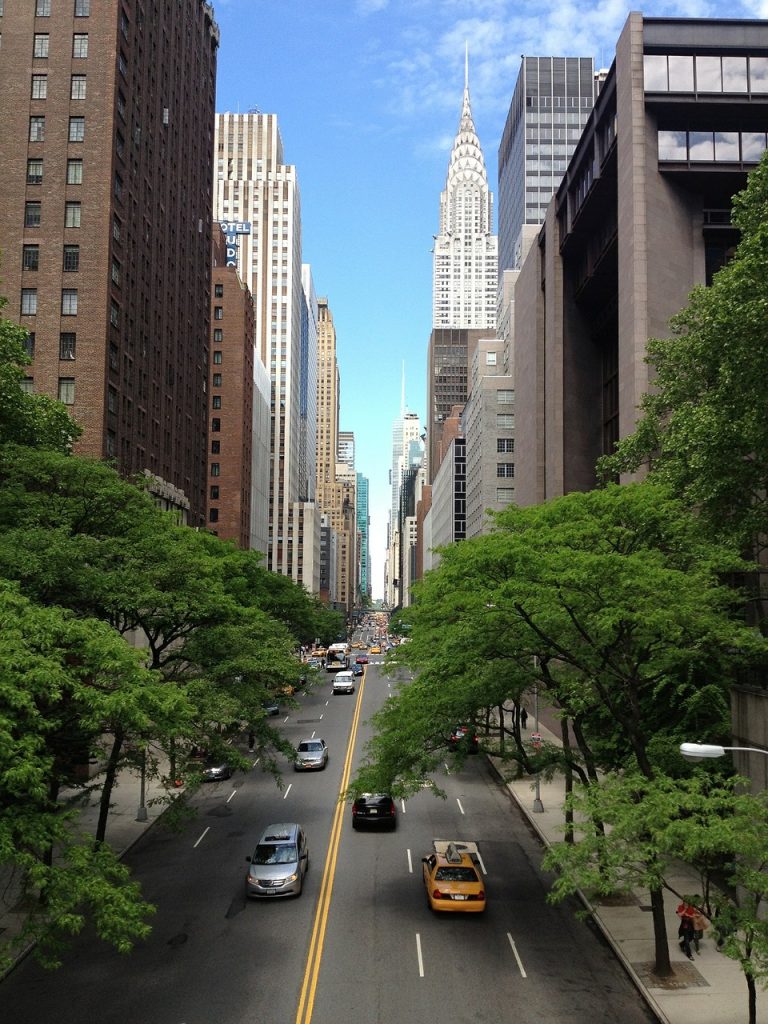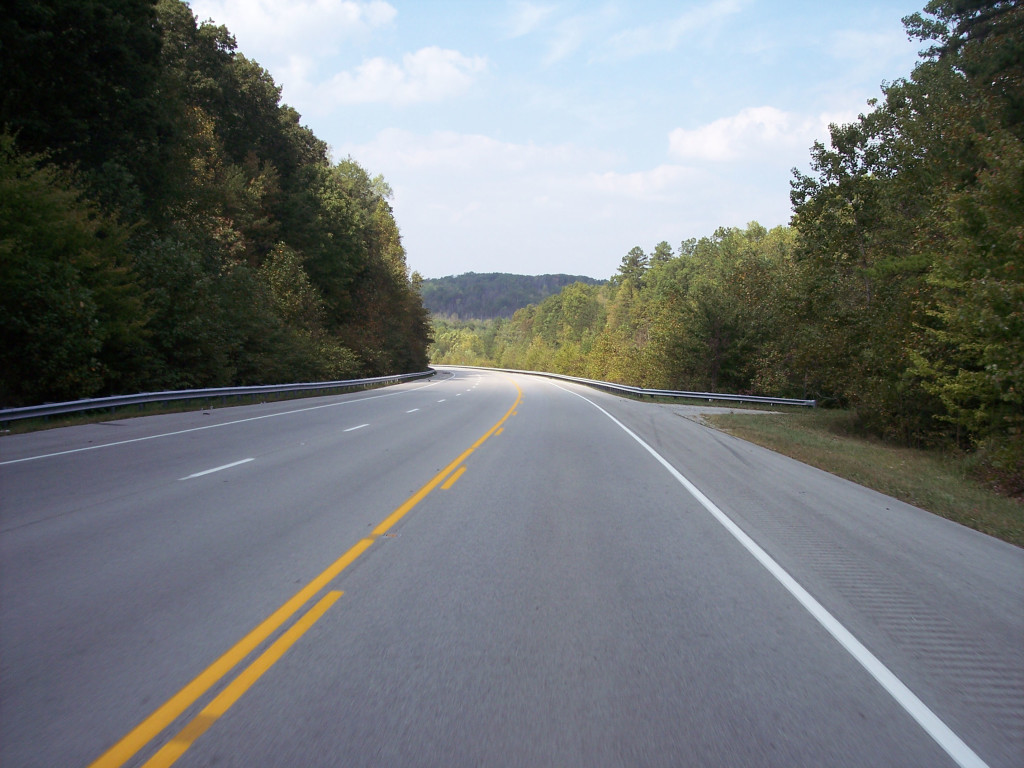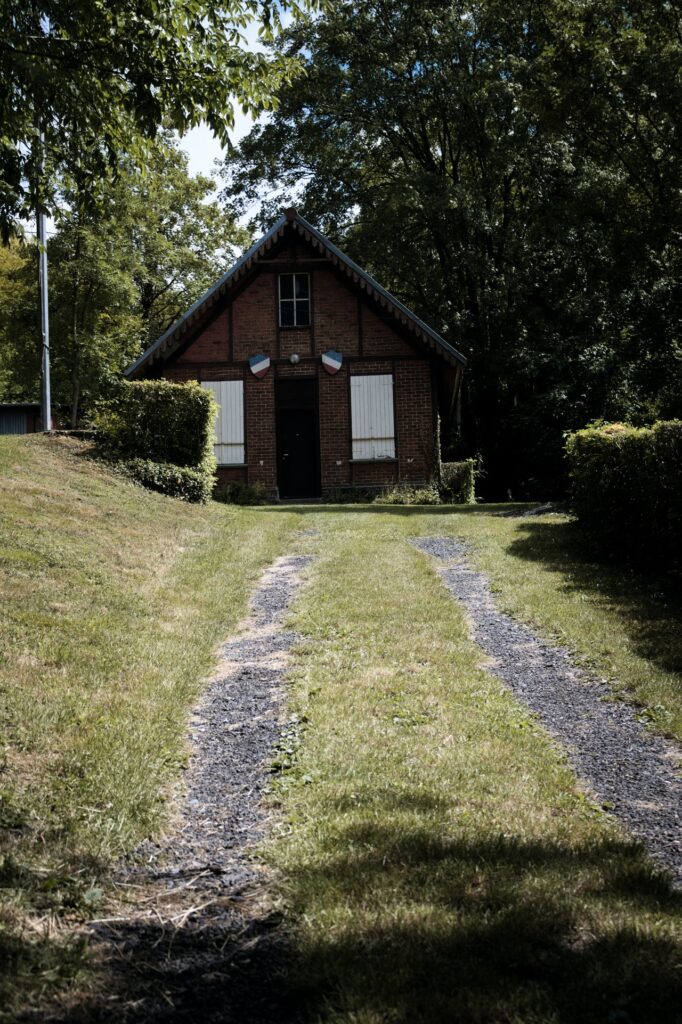My husband is really getting into the whole eco-friendly lifestyle. I have even heard him telling friends and family how little trash we throw away each week. I’m glad he doesn’t think I’m a complete nutcase! So, recently he asked me “Which is better for the environment: Asphalt or Concrete roads?” To be honest, I had never given it much thought. I decided to do a little research and thought I would share my findings.
Asphalt and concrete both have advantages and disadvantages. However, the best solution for roads, driveways, and other building projects is most likely new concrete alternatives or old-fashioned stones, brick, or grass.
Posts feature partner companies & may be sponsored. Post contains affiliate links & I will be compensated if you make a purchase after clicking on links. As an Amazon Associate I earn from qualifying purchases.
Table of Contents
Which is better? Asphalt or Concrete Roads?
So, which has a smaller environmental footprint? Asphalt or concrete roads? Many factors influence the choice of asphalt vs. concrete for road creation. Neither material is necessarily better than the other… there are pros and cons to both materials. Concrete roads are very durable and slightly more environmentally friendly compared to asphalt roads.
However, asphalt costs quite a bit less to install. Asphalt roads are also a bit safer when it comes to things like snow and skidding.
Are Asphalt Roads Greener?
Asphalt vs concrete roads. Which is the better choice for the environment? While you probably don’t have much say in what your city uses, I thought I would share some ideas about which one is better for the environment!
- PRO: For the initial construction, asphalt has lower “ore and fertilizer input requirements,” and lower toxic emissions.
- CON: For the initial construction asphalt has a higher energy input.
- PRO: Asphalt has been recycled in larger quantities than concrete saving resources and reducing pollution. (according to one site….read on…)
- CON: It has higher hazardous waste generation and management than steel-reinforced concrete
- CON: Asphalt absorbs sunlight and converts it into heat. In the hot summer sun, it can reach over 140°. Not good for global warming.
- CON: Asphalt is a byproduct of the petroleum industry. As oil reserves decline and/or prices rise this may become a problem. And, do we really want to support the petroleum industry?
✯Don’t want to miss the next post?✯ Follow Turning the Clock Back on Facebook | Twitter | Pinterest Or join the private Facebook group for simple tips on going green!
Are Concrete Roads Eco Friendly?
- PRO: Concrete requires less artificial light at night because it reflects light better. The less energy used in lighting the better, reducing emissions.
- PRO: Concrete is a light grey and reflects most of the energy of the sun.
- PRO: Concrete and steel reinforcements are recyclable. (according to the Concrete Reinforcing Steel Institute)
- CON: Cost. Concrete is more expensive
- CON: Concrete is made of Cement (composed of 75% limestone) and then sand, gravel, and water are added. This requires extensive amounts of mining. Do we really want to support extensive mining of our landscapes?

Eco-Friendly Concrete
The asphalt vs concrete argument continues to evolve as technology changes. What is the most eco-friendly concrete? There are many types of concrete, each with its own benefits and drawbacks. Here are some of the most popular eco-friendly concrete options:
-Fly ash concrete is made with fly ash, a byproduct of coal power plants. Fly ash concrete is strong and durable, and it has a lower carbon footprint than traditional Portland cement concrete.
-Slag concrete is made with blast furnace slag, a byproduct of steel production. Slag concrete is strong and durable, and it can help reduce the carbon footprint of a project.
-Recycled concrete is made with recycled aggregate. This can come from sources such as demolished buildings or old roads. Recycled concrete is a good eco-friendly option, as it reduces the amount of waste going to landfills.
-Compressed earth block (CEB) concrete is made with compressed earth blocks, which are made from soil and clay. CEB concrete is an eco-friendly option, as it uses natural materials and requires no manufacturing process.
Eco-friendly concrete is a great way to reduce the carbon footprint of your project. Be sure to talk to your contractor about the best eco-friendly concrete option for your project.
Driveway Alternatives for Homeowners
While homeowners can’t do much about the roads they drive on, there are asphalt and concrete alternatives when it comes to redoing your driveway. Here are a few sustainable drive materials you might want to consider:
Gravel:
Driveways can be built with gravel, which is a sustainable driveway material that is affordable and easy to install. This driveway option does require regular maintenance, as weeds can grow easily in the gravel.
Permeable pavers:
If you’re looking for driveway options that are environmentally friendly, then permeable pavers might be a good option for you. Permeable pavers are made with materials that allow water to flow through them, which helps to reduce runoff and prevent flooding.
Grass driveway:
A grass driveway is another driveway alternative that is sustainable and environmentally friendly. Grass driveways are easy to install and maintain, but they can be susceptible to weeds and other growth.
Stone:
Driveways can also be built using stone, which is a sustainable driveway material that is durable and long-lasting. Stone driveways require little maintenance and are easy to clean, but they can be expensive to install.
Asphalt and concrete driveways are not the only options. There are many sustainable driveway materials that can be used instead. Be sure to do your research and find the driveway alternative that best suits your needs. If you are a sustainable homeowner, check out The Ultimate Guide to Walks, Patios & Walls.
Greener Roads for Green Travel
SO, in general, it seems to be who you ask. Concrete people extol the virtues of concrete. Asphalt people say that their product is better. I am leaning towards concrete being the better of two evils but some others may disagree with me.
More Green Travel Tips
- Green Road Trip Ideas for Frugal Family Fun!
- Road Trip Advice: Stay Sane, Save Money and Go Green!
- Eco-Friendly Cruises: Why You Should Rethink Your Next Cruise Vacation
There are some newer materials being explored including porous asphalt and rubberized asphalt concrete. I think our eco-friendly existence depends on one of these newer materials. We need to start thinking outside the box a little bit if we are to lessen our impact with all our road building!
Sorry, hubby, no good answer to your question!

Diane is a professional blogger and nationally certified pharmacy technician at Good Pill Pharmacy. She earned her BS in Microbiology at the University of New Hampshire and has worked in cancer research, academics, and biotechnology. Concern over the growing incidence of human disease and the birth of her children led her to begin living a more natural life. She quickly realized that the information she was learning along the way could be beneficial to many others and started blogging and freelance writing to share this knowledge with others. Learn more about her HERE.



Our concrete roads seems to be in better shape, requiring less repairs, too.